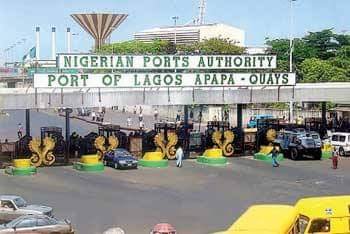By Abubakar Yunusa, Abuja
A Non-Governmental Organization (NGO), Contributory Pension and Happy Retirement Advocacy (COPEHRA) has said that the grievances of the police force with regards to Contributory Pension Scheme (CPS) can be resolved within the system.
This was the submission of COPEHRA at a public hearing on Police Pension Board (Establishment) Bill, 2022 (Sb 1009) and Nigeria Police Special Forces (Establishment) Bill, 2022 (Sb 846) held by the Senate committee on Police Affairs yesterday. The bill, which was jointly sponsored by Senators Ishaku Abbo, representing Adamawa North and Mohammed Ali Ndume, Borno South is seeking the establishment of a Police Pension Board that will serve as an exit plan for the Nigeria Police Force from the Contributory Pension Scheme and, establishment of Nigeria Police Special Forces for training of police officers. Member of COPEHRA) Project Advisory Team, Mahmud Ayinla while making the presentation said all the grievances of the police can be corrected within the current contributory pension scheme.
He said one of the grievances of the police is the poor monthly pension of a corresponding officer grade in CPS. He maintained that this only calls for the government to increase the funding of the Retirement Savings Account (RSA), not to take over the whole pension payment including its administration. Stating why the police should not be allowed to exit, he cited global best practice, issues of unfunded pension liabilities; statutory government disbursements /deliverables; sustainability and cost of governance.
Ayinla explained that ever since the global crisis in pension management, which is majorly funding, Latin America has led in policy reforms that has had their pensions management and administration switch from the pay-as-you-go / Defined Benefit System to the contributory pension schemes (CPS) where, in typical cases, worker and employer partly contribute to a fund to be invested in relevant mix of portfolio of assets. Consequently, he said, the divergence in pension administration from it being the sole responsibility of the Government or employer to a joint contributing system (Retirement Savings Account – RSA) has been met with an increase in patronage and adoption world over, be it in the private or public service.
Speaking on issues of unfunded pension liabilities, statutory government disbursements or deliverables, he noted that currently, the Government is saddled with heavy recurrent statutory expenditures as well as providing funding for necessary and important capital projects. He said: “Currently, the Government is saddled with heavy recurrent statutory expenditures as well as providing funding for necessary and important capital projects. A 3– year review of our country’s budget performance has shown that a large chunk of the budget is dependent on borrowed funds by virtue of rising budget deficits.
On sustainability and cost of governance, he said there is no sustainability in budgeting for a monthly pension, adding that the Sustainability of a non- terminal pension scheme such as the defined benefit scheme in the midst of the various modern challenges in a developing country like Nigeria is simply non-existent.
“The Government is always finding ways to cut down cost of governance, overhead and recurrent expenditures in a bid to provide more for capital and developmental programs and projects. Incurring a life-long recurrent pension liability with increasing funding by the year is of no benefit to the economic viability of the nation as it also incurs its associated administrative costs.”He further stated that DBS, which is where the police want to be, comes with the risk of fraud, corruption and lack of transparency as the government continually budgeted monies with no corresponding reduction in pension liabilities.
“The devastating past story of the country’s pension industry (Defined Benefit Scheme) cannot be compared with the ease, consistency and sustainability of the Contributory Pension Scheme (CPS). The former DBS was riddled with fraud, corruption and lack of transparency as the government continually budgeted monies with no corresponding reduction IN pension liabilities. The CPS has provided a platform to track contributions and savings via monthly, quarterly and yearly statements to the contributors and pensioners while the regulator (PenCom) carryout their regular regulatory and compliance functions.”
Similarly, the CEO of Pension Fund Operators Association of Nigeria, Oguche Agudah said allowing the police to exit the CPS means taking Nigeria to the dark days. He said the concern is about the sustainability of the funding of the police board, transparency of the system as entrenched in the CPS and its risk for the nation’s financial system. He said: “The system is not perfect, I must admit. What is needed to be done is to rejuvenate the system and make it better,”






















